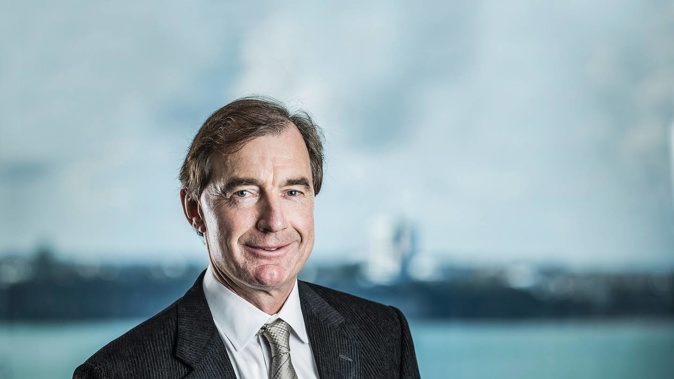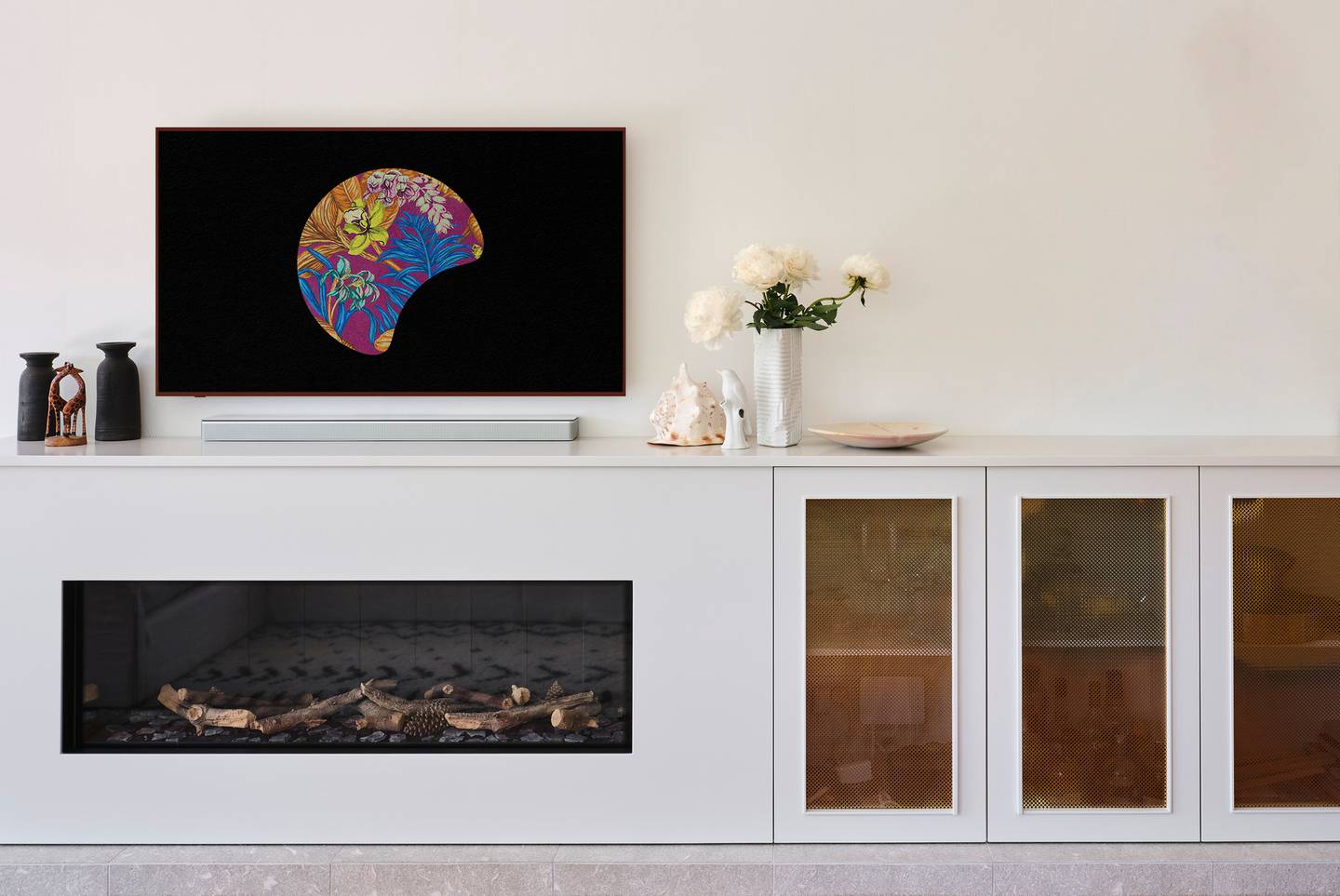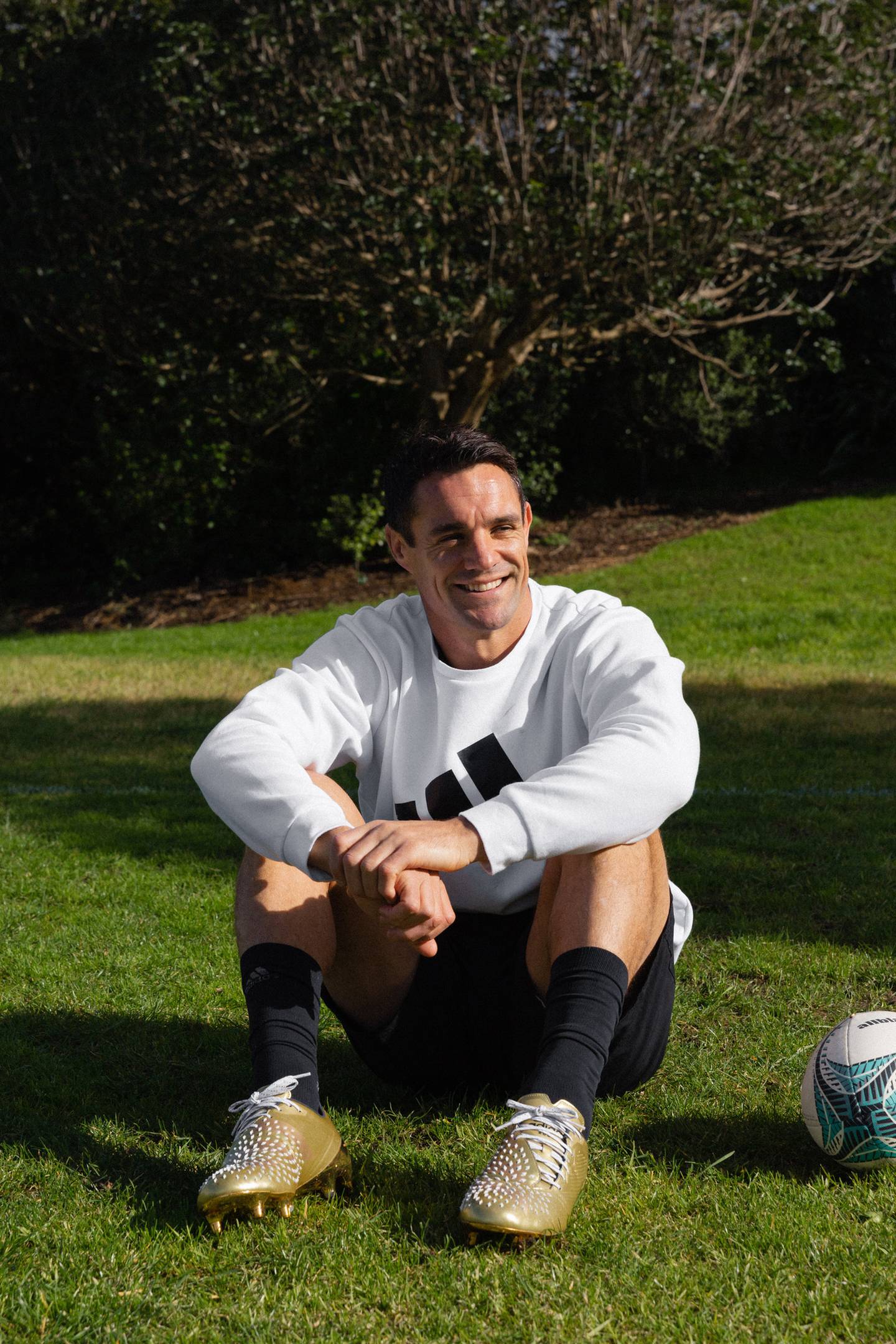
Richlister businessman Craig Heatley has invested in a New Zealand NFT (non-fungible token) company.
The Kiwi multimillionaire, entrepreneur and philanthropist has taken a stake in Glorious Digital, a recently established New Zealand company specialising in high-end NFTs. Glorious specialises in artwork, music and sport.
Heatley is enthusiastic about his investment.
"A new industry around digital art ownership is being born before our eyes, it's tremendously exciting and the potential is amazing," he said.
Heatley founded Rainbow Corporation in the 1980s which had interests in supermarkets, Rainbow's End and property. He set up Sky Network Television, later selling his stake in 2002.

Glorious' first NFT, the Glorious Founding Membership (GFM), displayed on a TV screen. The artwork is by Reuben Paterson that will evolve over time to include work by other artists. Photo / Supplied
"This reminds me a lot of Sky. When we first started Sky, people didn't understand what we were trying to do and didn't think that people would pay for television because it had always been so-called 'free'," he said.
"I see this space as quite analogous. I have absolute belief in the technology long term."
Heatley has joined a team of Glorious co-founders which includes former All Black Dan Carter, PwC partner Scott McLiver, former Solicitor-General of New Zealand Mike Heron, international music producer Murray Thom and entrepreneur Tim Harper.

Former All Black Dan Carter is one of the co-founders of Glorious. Photo / Supplied
Wellington art dealer James Blackie, owner of dealer gallery Page Blackie, has also recently joined Glorious as a shareholder and is now working as the studio's director of art. Already in the NFT line-up are New Zealand artists including Lisa Reihana, Reuben Paterson, John Walsh, Karl Maughan, Dick Frizzell, Heather Straka, Joe Sheehan, Darryn George and the estates of Gordon Walters and Rita Angus.
Heatley said it was the calibre of the Glorious founders that was the main reason for him investing.
"There is an instinctively high level of trust which is getting increasingly rare these days."
Heatley, who has an interest in art, said he was interested to see how art would evolve digitally.
"The art market has not been disrupted in centuries and the electronic medium for art has massive potential," he said.
"It's exciting for all involved because the technology is going to allow artists to continue to participate financially in their work going right into the future. And forgery becomes a thing of the past in this world because you are going to have absolute security of provenance."
Take your Radio, Podcasts and Music with you









